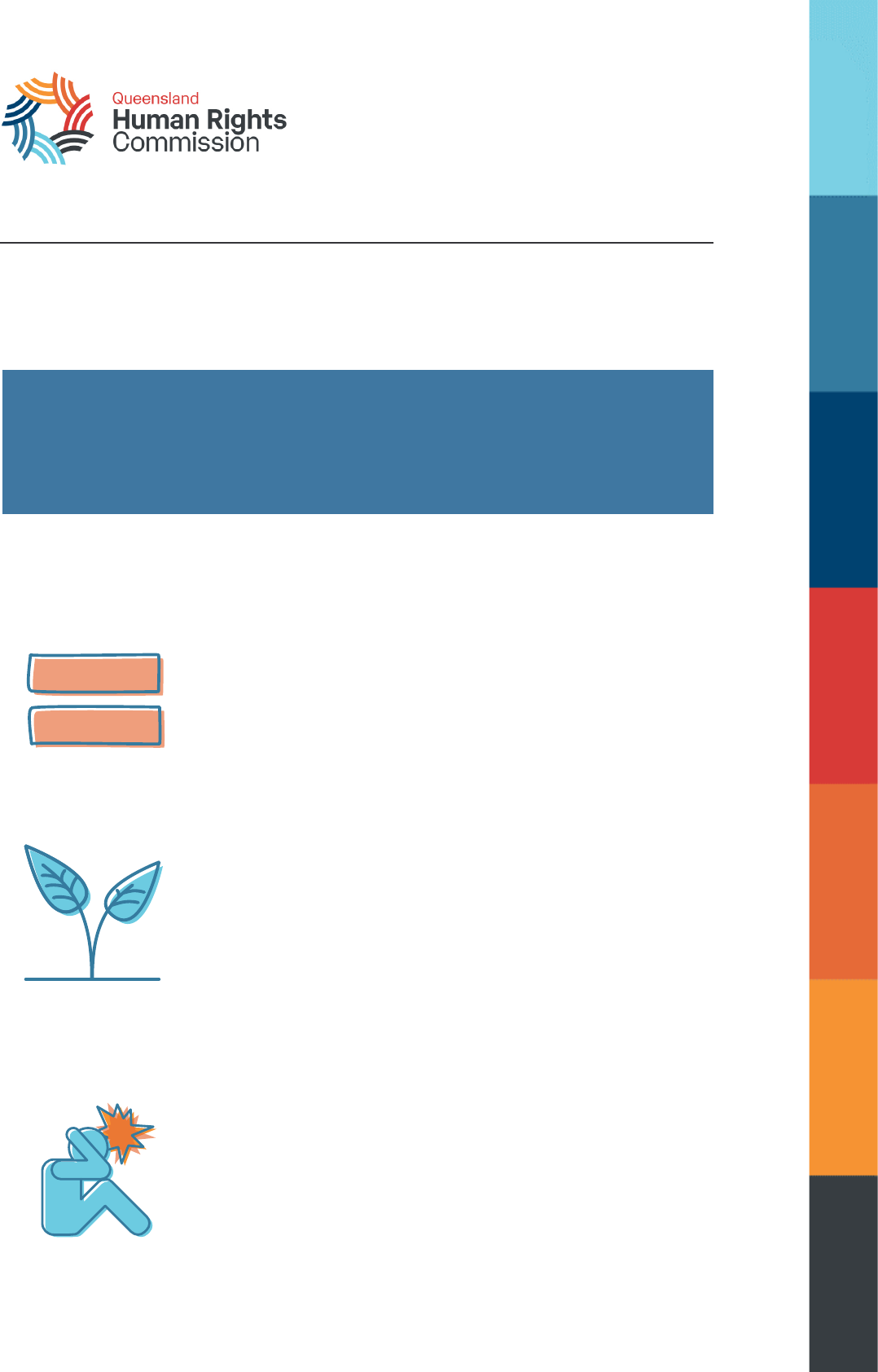
FACT SHEET:
This fact sheet last updated: June 2021 | www.qhrc.qld.gov.au
The Queensland Human Rights Act:
an easy read guide
All people have human rights.
In Queensland the Human Rights Act 2019 protects these rights when you come
in contact with the government or use their services – including the police, public
hospitals, and public schools.
The human rights are:
Recognition and equality before the law
You have the same rights as everyone else and have a right to the
same protection.
You have the right to use and receive services from the government
without discrimination.
Right to life
This right relates to things the government can do to protect your life,
such as having laws about:
• violence
• health and safety
• road rules
and making sure people follow them.
The right to life does not aect laws about abortion.
Protection from torture and cruel, inhuman or degrading treatment
You have the right not to be:
• tortured
• treated in a way that badly hurts your body or your mind
• used for experiments – unless you understand and agree
• given medical treatment – unless you understand and agree.
However, you can be given treatment without your consent to save
your life or protect you from harm.
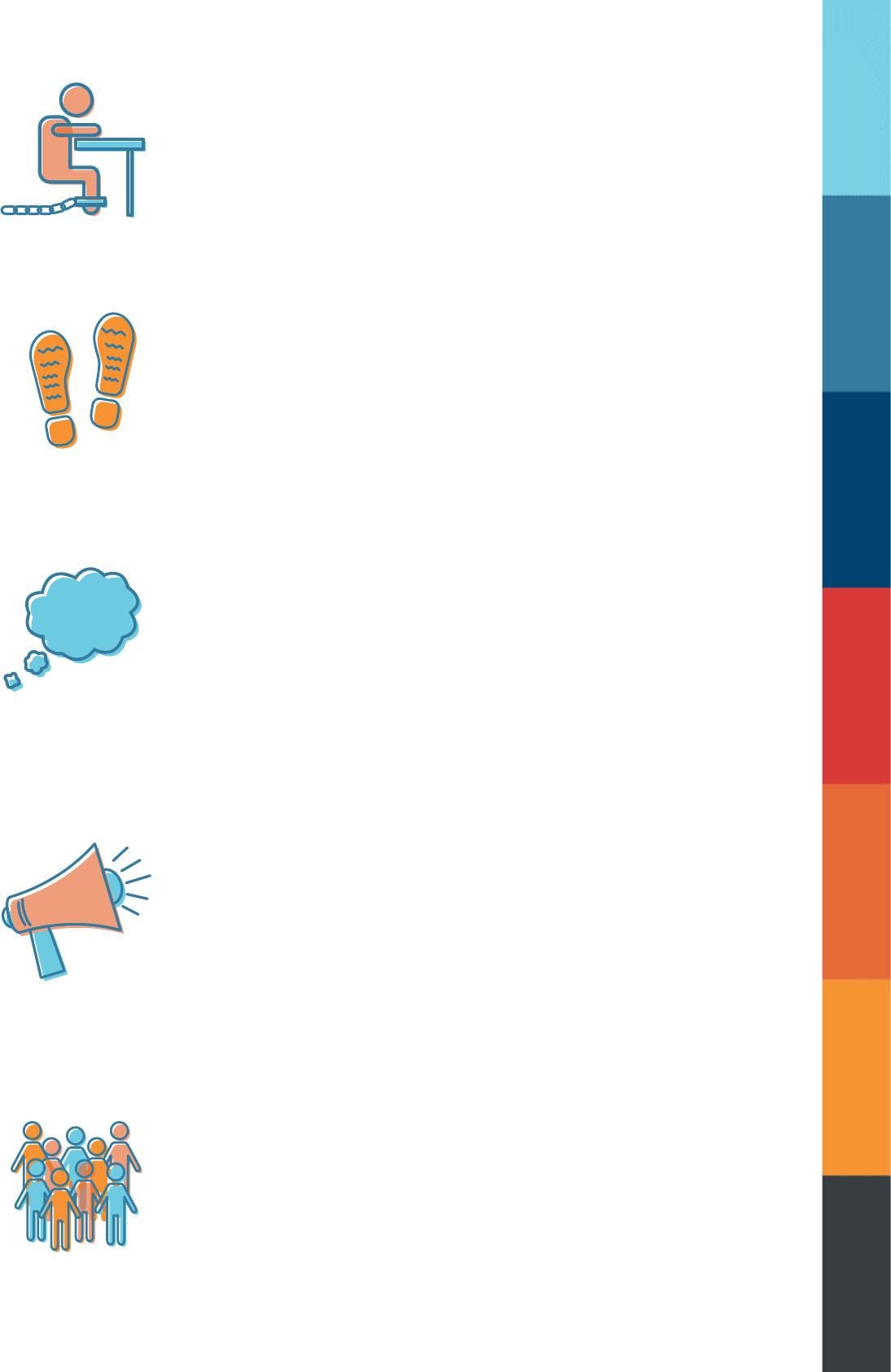
This fact sheet last updated: June 2021 | www.qhrc.qld.gov.au
Freedom from forced work
You have the right not to be:
• treated as a slave
• owned by someone else
• forced to do work.
This right does not apply if you are required to do work as part of a court
order – such as community service.
Freedom of movement
You have the right to choose where you live, and to:
• move freely within Queensland
• leave and come back to Queensland.
This freedom can be limited in an emergency – such as the COVID
pandemic – or if you have broken the law and a judge says that you are not
free to move wherever you want.
Freedom of thought, conscience, religion and belief
You have the right to:
• think and believe what you want
• have a religion or faith
• practice your religion or beliefs in public or private, while on your own, or
as part of a group.
A dress code at school or work should not stop you wearing clothes
required by your faith.
Freedom of expression
You have the right to:
• have your own opinion
• share your ideas and opinions – such as through art, writing, public
speaking, and social media
• ask for and receive information and ideas from other people – including
the government.
While you are free to say what you want, you must respect other people –
for example, you can’t use hate speech, cyberbullying, or say untrue things
to attack people.
Peaceful assembly and freedom of association
You have the right to:
• meet with other people who share your beliefs and opinions, or join a
group to do this
• join a trade union
• meet peacefully to show how you feel about something.
For example, you can go to a peaceful rally or event – but you can’t be
violent.
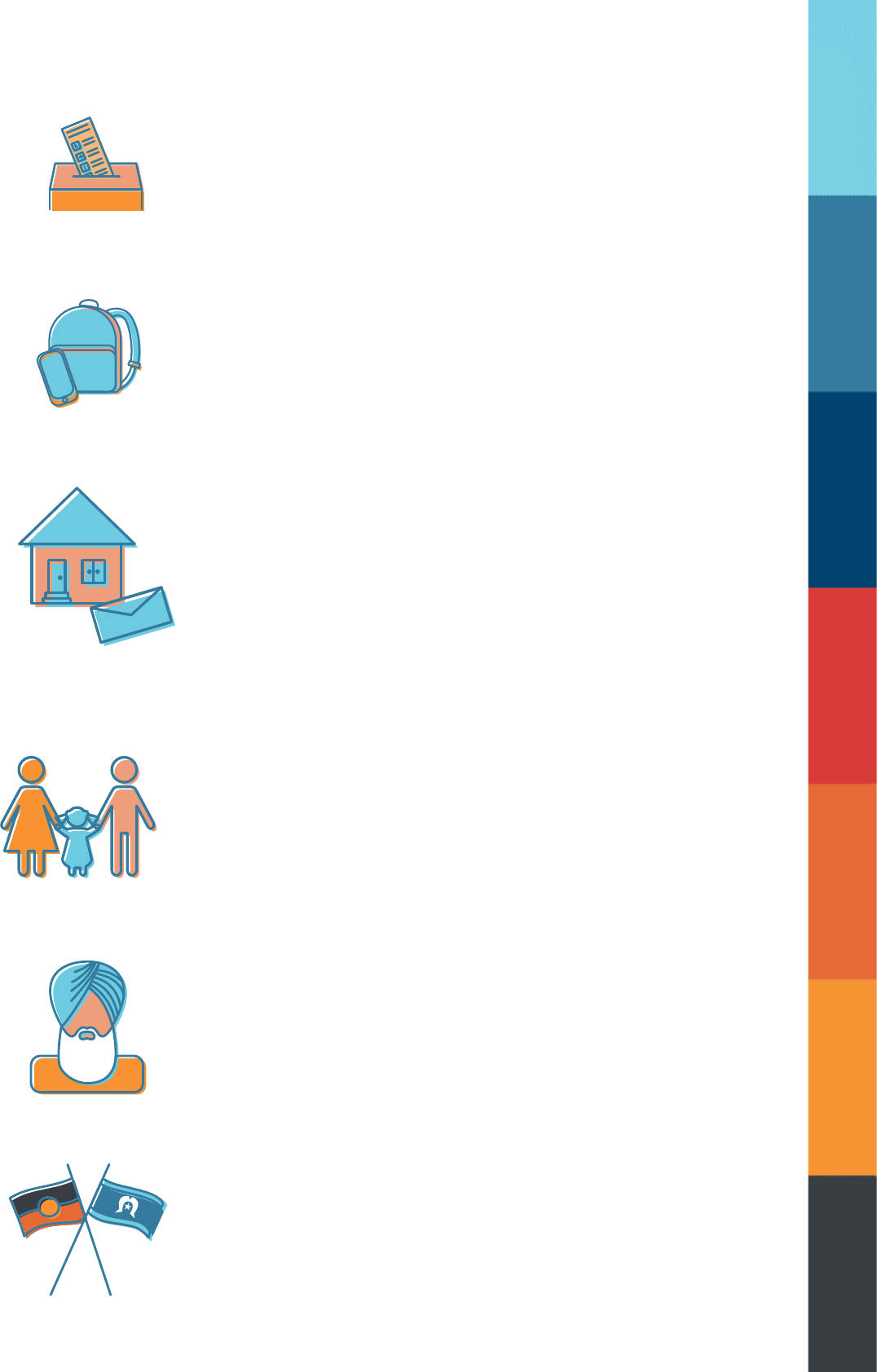
This fact sheet last updated: June 2021 | www.qhrc.qld.gov.au
Taking part in public life
You have the right to:
• vote in state and local council elections – if you are 18 or older and
live in Queensland
• stand for election to government
• apply for work in government.
Property rights
You have the right to own things – like a phone, car, or land.
The government can’t take away your property unless the law allows it –
for example, some laws ban owning certain weapons or types of animals.
Privacy and reputation
You have the right to keep your life private, including your family and
home.
The government can’t:
• share information about you, unless you say they can
• search you or your bag, unless you say they can
• interfere with your family life or home, unless the law says they can –
for example, if police have a warrant to search your house, or orders
to protect victims of family violence
• say things about you that aren’t true or make you look bad.
Protection of families and children
Families are important, and the government has an obligation to protect
families.
Children have the right to special protection because of their age. The
government must protect children, and treat children in a way that is in
their best interests.
Cultural rights – generally
You have the right to:
• enjoy your culture
• practise your religion
• use your language
with other people who share your background.
Cultural rights – Aboriginal peoples and Torres Strait Islanders peoples
Aboriginal peoples and Torres Strait Islander peoples have the right to
enjoy their culture, including maintaining their:
• cultural identity
• traditional knowledge, spiritual practices, beliefs, and teachings
• language
• kinship ties
• relationship with land, waters, seas, and the environment.

This fact sheet last updated: June 2021 | www.qhrc.qld.gov.au
Right to liberty and security of person
• You have the right to be free and safe.
• You can only be arrested or detained in accordance with the law.
If you are arrested or detained – such as in a watch house, mental health
unit, or other place that you are not free to leave – you are entitled to
certain minimum rights.
Humane treatment when deprived of liberty
If your freedom is taken away – such as in a prison, watch house, secure
hospital ward, or other place that you are not free to leave – you have the
right to be treated with respect and dignity.
Until you are charged and found guilty of an oence, you must be
kept separate from people who have been found guilty. However,
overcrowding in prisons sometimes means that this does not happen.
Fair hearing
If you have to go to court, you have the right to a fair hearing.
• Your case must be decided by a competent, independent, and
unbiased court.
• You can tell your story about what happened.
• You can get help from someone – such as an interpreter or lawyer – if
you would not get a fair hearing without that help.
Sometimes people aren’t allowed to watch what happens in court – for
example, if children are involved.
Rights in criminal proceedings
You are not guilty of a crime until it is proved in court.
• The police have to tell you what they think you did and what you have
been charged with – in a language you understand.
• You should have time to prepare your defence and speak with your
lawyer or advisor.
• Your case should not be unreasonably delayed in going to court.
• You should be told when you may be able to get help from a legal aid
lawyer.
• You should not be made to say that you did something.
• Children should be treated dierently to adults.
• The procedure for dealing with a child should suit the child’s age, and
help the child to not commit crimes in the future.
If the judge says you are guilty, you can ask a higher court to look at your
case again.
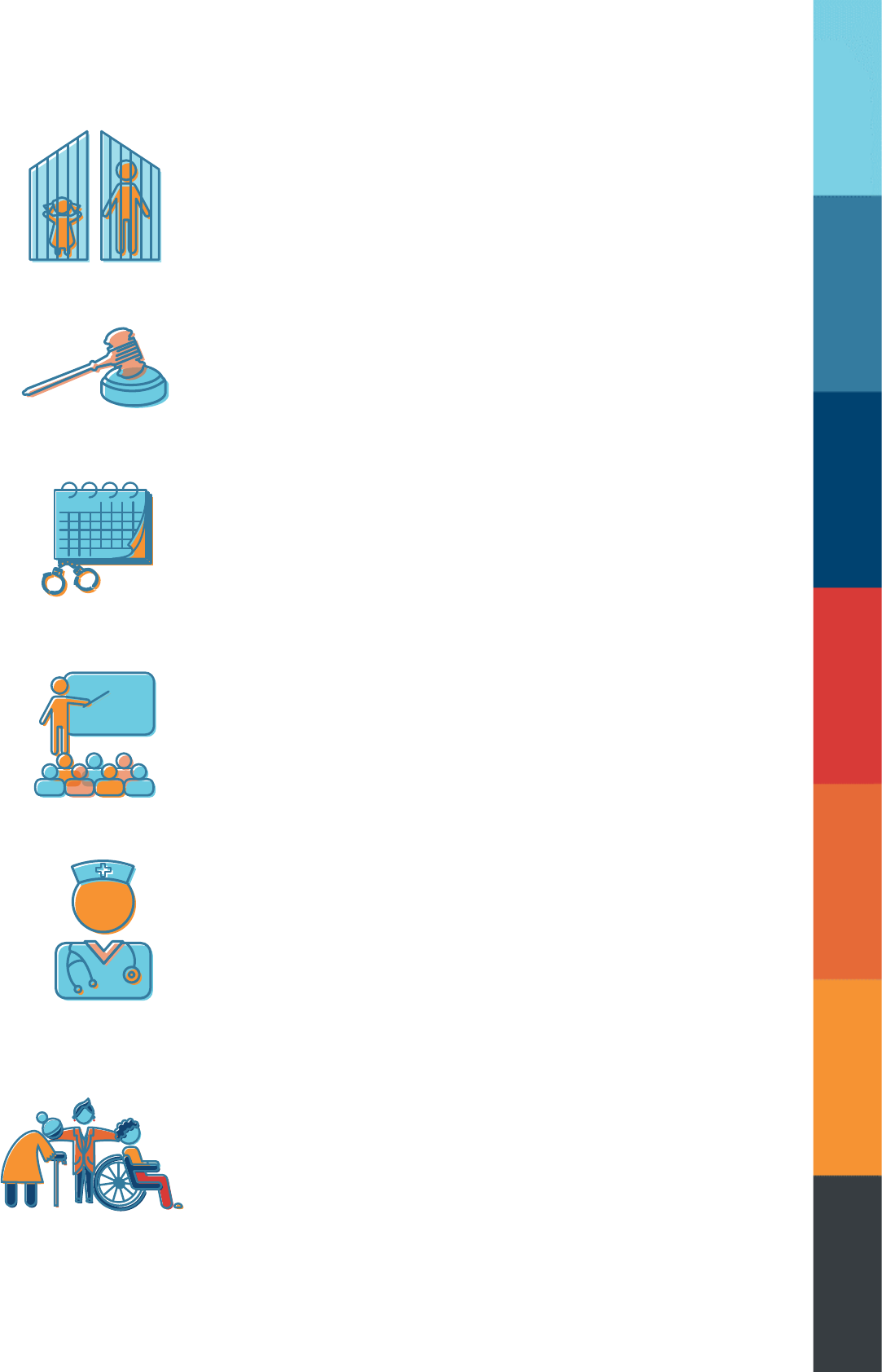
This fact sheet last updated: June 2021 | www.qhrc.qld.gov.au
Children in the criminal process
Children who have been detained – whether they have been charged or
not – have the right to be:
• kept separate from adult detainees
• brought to trial as quickly as possible
• treated in a way that is appropriate for their age, if convicted.
Right not to be tried or punished more than once
You have the right not to be tried or punished more than once for the
same crime.
Retrospective criminal laws
This right is about changes in the law.
You cannot be found guilty of a crime, if your action was not a crime when
you did it.
Right to education
• All children have the right to have access to schooling that meets their
needs.
• All people have the right to have access to training and vocational
education – that suits their abilities.
• You have the right to education without discrimination.
Right to health services
• You have the right to access health services.
• You have the right to health services without discrimination.
• You must not be refused emergency medical treatment to save your
life or stop serious damage to your health.
Discrimination
A number of rights mention discrimination.
Discrimination is when you are treated worse than someone else
because of something about you. Discrimination can be because of
things such as your race, disability, sex, colour, age, sexuality, religion,
mental health condition, or other characteristics.
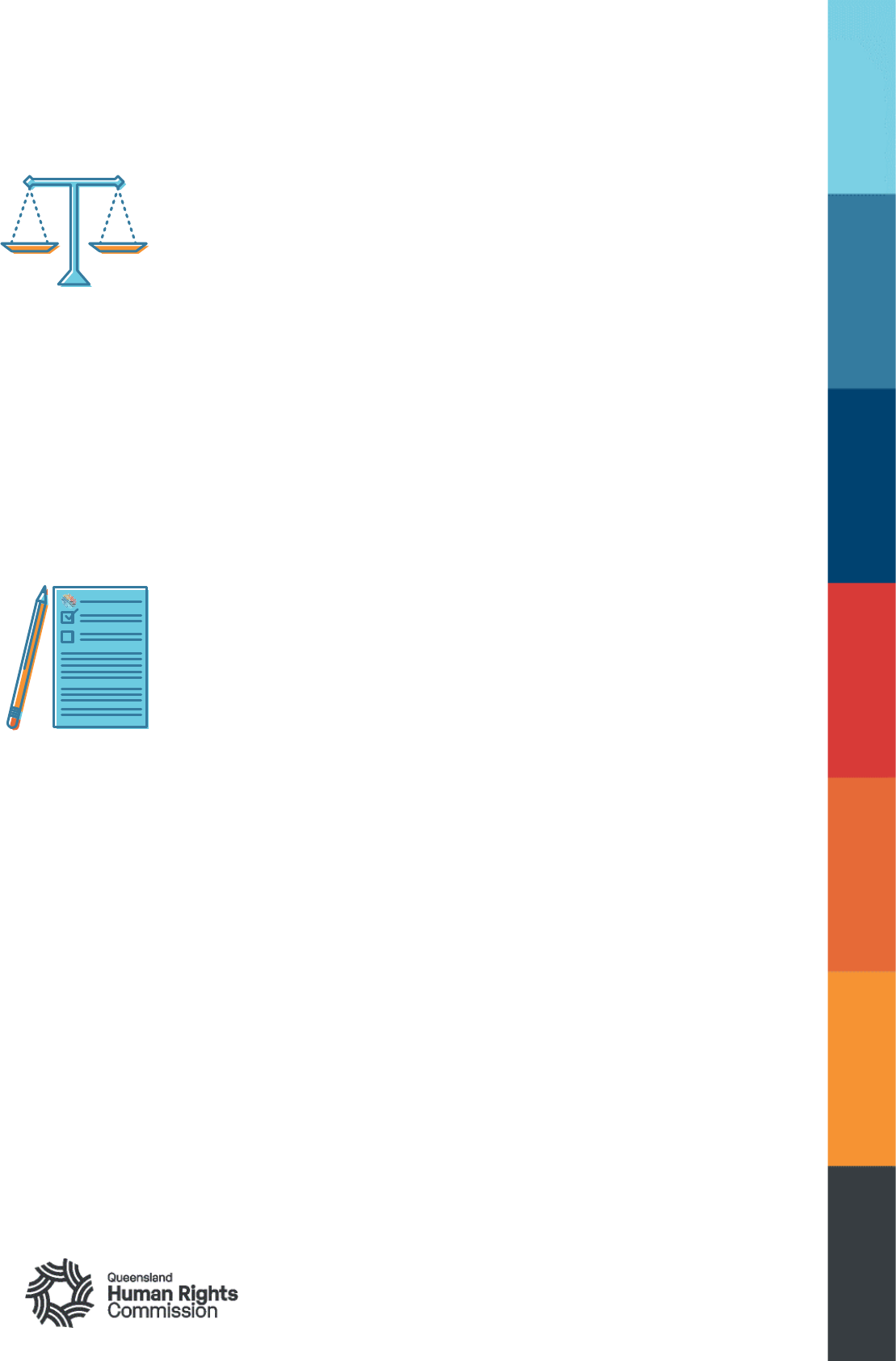
More information is available from the
Queensland Human Rights Commission
website at www.qhrc.qld.gov.au.
This fact sheet last updated: June 2021.
Balancing rights
Sometimes your rights will conict with someone else’s rights.
When this happens, the government may limit or restrict your rights to protect the
rights of other people or the community.
This is what happened in the COVID pandemic when people couldn’t visit family
in nursing homes or prisons. It was to protect the right to life of people in those
places.
Sometimes one of your rights might be in conict with another of your own rights.
This could happen if you had an accident and were unconscious. You could not
agree to medical treatment – which is your right – but you also have the right to
be given medical treatment in an emergency.
Finding a balance between competing rights can be tricky. The government
has to think about the impact on you of limiting your human rights – and what
alternatives there are to limiting them.
Making a complaint
If you think the government has not considered your human rights in a decision
or something they have done that aects you, you might be able to make a
complaint.
• The rst step is for you to make a human rights complaint to the government
department or service you are complaining about.
• Then you have to wait for their response to your complaint.
• If 45 business days pass and they haven’t answered your complaint – or if
you aren’t satised with their answer – you can complain to the Queensland
Human Rights Commission.
• You need to make your complaint in writing. If you have trouble putting your
complaint in writing, contact the Commission to nd out how we can help.
You can:
• Call us on 1300 130 670.
• Find more information on our website at www.qhrc.qld.gov.au.
